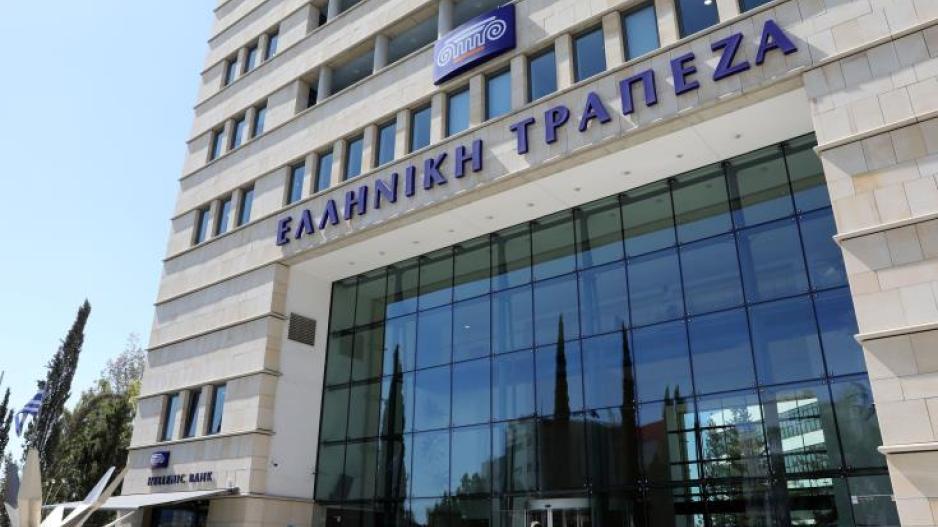Fitch Upgrades Hellenic Bank to 'BBB-' with Stable Outlook
Improved Cypriot Economic Environment and Strong Bank Fundamentals Drive Rating Upgrade
Fitch Ratings has upgraded Hellenic Bank's Long-Term Issuer Default Rating (IDR) to 'BBB-' from 'BB+', with a stable outlook, and its Viability Rating (VR) to 'bbb-' from 'bb+'.
According to Fitch, this upgrade primarily reflects the enhancement of Cyprus's sovereign rating to 'BBB+'/Positive and an improved assessment of the Cypriot operating environment. The sovereign rating improvement was driven by reduced private sector indebtedness and expectations of continued economic growth—factors that Fitch believes support the long-term sustainability of Cypriot banks' business models and improve banking sector fundamentals.
The upgrade also recognizes Hellenic Bank's consistent record of healthy profitability, leading to capital accumulation, stable asset quality following the clean-up of legacy exposures, and inexpensive deposit-based funding.
Fitch has withdrawn Hellenic Bank's Government Support Rating (GSR) of 'no support' (ns) as it is no longer relevant to the agency's coverage. This change follows the increase of Eurobank S.A.'s stake in Hellenic Bank to 55.4% from 29.2% in June 2024, making Eurobank the most likely support provider. Consequently, Fitch has assigned a Shareholder Support Rating (SSR) of 'bb-'.
Hellenic Bank's Long-Term IDR is driven by its VR, reflecting its strong competitive position as the second-largest bank in the small Cypriot market, stable deposit-based funding, and robust liquidity. It also reflects adequate profitability prospects in a positive interest rate environment, above-average regulatory capital ratios, and manageable asset quality metrics.
Fitch notes that Hellenic Bank's business profile is characterized by traditional commercial banking activities. Diversification in fee-generating activities and insurance is limited but expected to improve upon the closing of the acquisition of CNP Assurances SA's Cypriot and Greek activities in the first quarter of 2025. Hellenic Bank has strong domestic market shares, especially among households. However, the small size of Cyprus limits growth opportunities.
Regarding asset quality, Hellenic Bank's non-performing exposure (NPE) ratio of 2.5% at the end of March 2024 (excluding NPEs guaranteed by the asset protection scheme, APS) is well below historical peaks. Fitch expects it to remain below the bank's medium-term target of 3% over the next two years, a level in line with the southern European average.
Moreover, Fitch's assessment of Hellenic Bank's asset quality reflects that nearly two-thirds of the bank's assets are in cash and high-quality debt securities, which are significantly lower risk than the loan book.
A negative rating action could occur if the economic environment in Cyprus deteriorates sharply. This could be triggered by an unexpected domestic economic recession and a sharp rise in unemployment without prospects of a short-term rebound, leading to a significant deterioration of borrowers' creditworthiness and reduced business opportunities for banks.
"We could downgrade the ratings if we expect Hellenic Bank's problem asset ratio (which includes NPEs and foreclosed real estate assets, but excludes APS-guaranteed NPEs) to rise above 6% for a prolonged period and the CET1 ratio to fall below 15%, causing CET1 capital encumbrance by unreserved problem assets to significantly rise," Fitch notes.
On the other hand, Fitch states that a positive rating action is unlikely unless there are further improvements in the Cypriot operating environment. This would require business opportunities for the bank to exceed current expectations, driven by structurally stronger credit demand and penetration of wealth management and insurance products.
An upgrade would also necessitate evidence of a stronger business profile, even in a lower interest rate environment. Additionally, the problem asset ratio (excluding APS-guaranteed NPEs) would need to fall below 3%, and the CET1 ratio to remain above 15%. An upgrade would require a record of solid risk governance, well-managed risk concentrations, stable funding, and continued compliance with MREL.






